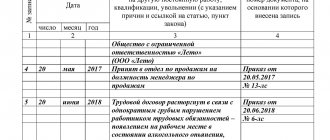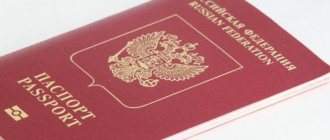The need to evict an unwanted tenant from an apartment, fortunately, does not arise very often. Fortunately - because the procedure is legally complex and very sensitive from a moral and emotional point of view.
Eviction through the court automatically means that it was not possible to peacefully agree on the vacancy of the living space, which means that the defendant can “sabotage” both the trial itself and the execution of the court decision for quite a long time. He will still have to leave, but during this time a lot of nerves on both sides will be frayed.
In any case, this process will have to begin by filing a lawsuit for eviction from the apartment.
Filing a competent claim is not easy. It must comply with all the requirements of civil and procedural legislation of Russia. The slightest inaccuracy - and the application will either not be accepted (this is not the biggest problem; after amendments are made, it can be submitted again), or the decision on it may not be in favor of the plaintiff.
Our first expert advice is to definitely consult with a lawyer before starting the case.
If the situation is complicated and ambiguous, full legal support of the process may be needed. This service is paid, but an experienced lawyer will be able to guarantee that you will unconditionally win the case, the process will not drag on for a long time and will not cause you unnecessary worries.
In this article we will look in detail at the features of filing a claim to evict a person from an apartment. The subject of consideration will be eviction from both privatized and municipal housing.
Grounds for eviction of a person from an apartment
There are not many legal grounds on which an owner can evict tenants from his apartment. If we are talking about a private owner, this is:
- The need to make a transaction with the apartment (sell, mortgage, exchange, donate, bequeath). If the apartment is not divided into shares by the whole family, and there is only one legal owner, in this case he has the right to write out and evict everyone - both outside residents and family members.
- Completion of the rental period of housing. When the lease expires and the tenants refuse to vacate the living space, the owner may well evict them in court, according to Article No. 688 of the Civil Code of the Russian Federation. Such situations usually do not cause difficulties if the residents were not registered at this address.
- Termination of family ties. This wording usually means divorce, although it equally applies to deprivation of parental rights. This is the most common and most “slippery” case of eviction. Article No. 31 of the Housing Code of the Russian Federation theoretically regulates the eviction of a former spouse “to nowhere,” but in practice there are many reservations that may not allow this to be done. This topic requires a separate discussion and will be discussed in detail in our other articles.
The following may be evicted from an apartment owned by a city or municipality by court:
- For violation of a social tenancy agreement
- When the period of social employment ends
Eviction usually “goes hand in hand” with discharge. But, despite the close connection, these are different concepts from a legal point of view:
- Extract is the cancellation of registration at a given address
- Eviction is a measure of the actual removal of a person from a specific living space that he occupied
ATTENTION! If a person has been discharged from an apartment, but lives in it with the permission of the owner, it would be most reasonable to draw up a fixed-term agreement for the use of living space. When its validity period expires, the right of this person to be in the living space is automatically liquidated.
Oral agreements most often “play against the owner.” If there is no agreement, the person can only be evicted through court. This is an extra waste of money, in addition, the actual eviction will take place only after the end of the process, which can last several months. In such situations, it is advisable to consult with a lawyer in advance, who will suggest the most optimal option for legal registration of residence of an unregistered tenant in your living space.
How to correctly file a claim for eviction in court?
First of all, you need to determine how many claims the application will contain. The standard application for such cases involves one double requirement - to discharge the citizen and evict him from the living space he occupies.
The statement of claim is written in free form, but its design and content must comply with the requirements of Article No. 131 of the Code of Civil Procedure of the Russian Federation. We bring to your attention their clear presentation, convenient for practical use:
- The first (or only) page begins with a “Header” located in the upper right corner. It must indicate the judicial authority to which the claim is filed, as well as the name and address of the plaintiff.
- This is followed by the title “Statement of Claim (for eviction, for recognition of the tenant as having lost the right to use the living space, for termination of registration, etc.).” It can also indicate who the person being evicted is - a tenant, a former relative, etc. Located in the center of the page.
- Grounds giving the right to evict from an apartment. In this part it should be confirmed that the apartment is the private property of the plaintiff. Then a list of people living in the apartment is given (the defendant must be on the list). After this, it is indicated which of the residents is subject to eviction. Then - the grounds for eviction, which, as mentioned above, can be the termination of family ties, the expiration of the rental period, the need to sell the apartment, damage to property or illegal conflict behavior.
- Next, you should indicate whether attempts were made to settle the case out of court, and what kind. This is important for judges. Such an attempt may include sending the defendant a written warning or notice inviting him to vacate voluntarily. If the notice is signed by the defendant, it promises evidence of an attempt at pre-trial settlement. If there is no signature, you can use the testimony of neighbors.
- After this, you should refer to the legal norms that provide grounds for eviction
- Then comes the claim - to forcibly move a citizen out of an apartment located at such and such an address and/or cancel his registration
- List of attached documents
- Request to call witnesses (if necessary)
- Date and personal signature of the plaintiff.
You can write the claim by hand, or type it on a computer and print it out. It is important that there are no grammatical errors in the text, the presentation style is businesslike, laconic, without emotional overtones, without expressive or abusive language.
How to compose it correctly?
The inability to resolve the issue amicably leads the owner to court. The question arises: how to fill out a claim correctly so that the court does not have any questions?
Contents of a claim for eviction from a residential premises in 2021:
- Upper right corner (“header”) – indicate the name of the court, full name, contacts and telephone numbers of the parties;
- Below in the center is the name of the claim document;
- Descriptive part – information about the apartment, room; ownership; information about residents;
- Reasons for eviction - what rights were violated; were there any attempts to resolve the dispute at the pre-trial stage; what articles the plaintiff refers to;
- Petition to summon witnesses to court (if necessary);
- List of attachments - documents that the plaintiff attaches to the claim;
- The lower section is the date the claim was filed; plaintiff's signature with transcript.
A common mistake is filing a claim in a single copy on behalf of the applicant. In fact, the plaintiff will be required to submit at least three copies of the application , depending on the number of participants in the court hearings (Article 132 of the Code of Civil Procedure of the Russian Federation). Failure to comply with this requirement results in refusal of registration.
This is important to know: Where to submit 6 personal income taxes for a closed separate division
Sample statement of claim for eviction from a privatized apartment
Most often, residents are evicted by the owners of a privatized apartment. A sample of such a claim can be found on the Internet or contact a lawyer for a free consultation - a lawyer. They will give you writing tips or a secure link to download the sample.
Let's consider what points the statement of claim regarding eviction from a privatized apartment consists of.
- Introductory part. She is also "Hat". Includes the name of the territorial court and the personal details of the plaintiff (full name) with address
- Descriptive part. Contains a statement of the facts of the case and the circumstances that led to the need to go to court (for example, the tenant does not move out, although the contract has expired, the ex-spouse refuses to “vacate the living space”, the tenant is not discharged, although a transaction to sell the apartment has already been planned, etc.) . The grounds for eviction must be documented.
This part should contain information about the plaintiff’s attempts to resolve the case peacefully, without going to court.
- Motivational part. References to the norms of the Civil, Housing, Family Codes or norms of laws that allow you to evict a citizen from an apartment.
ATTENTION! The most common grounds for eviction are Articles No. 31 (Part 4) and No. 35 (Part 1) of the Housing Code of the Russian Federation. But there are other legal norms. If you don’t know which act to refer to in order to make the claim more effective, contact the housing and family law lawyers of the Prav.io portal.
- The operative part is the actual claim to the court
Next, you should list all the documents that will be attached to the claim, sign and indicate the date of filing the application.
State duty
An eviction claim is considered non-property, so the state duty for any eviction claim will be 300 rubles.
Eviction lawsuits are quite complex. An incorrectly drawn up statement of claim, the absence of any document, or an incorrect sequence of actions on the part of the plaintiff can lead to the court refusing to satisfy the claims.
To avoid mistakes when evicting a violator, it is necessary, at least at the first stage of the procedure, to obtain advice from an experienced lawyer. He will tell you what steps to take first, what steps to take later, draw up claims, help collect the necessary documents and, if necessary, represent your interests in court.
This is important to know: Application for return of claim: sample 2021
FREE CONSULTATIONS are available for you! If you want to solve exactly your problem, then
:
- describe your situation to a lawyer in an online chat;
- write a question in the form below;
Sample statement of claim for eviction from a municipal apartment
Issues of eviction from municipal housing are dealt with by its owner - the city or district administration. Article No. 83 of the Housing Code of the Russian Federation regulates the eviction of a tenant from a municipal apartment. According to it, family members of social tenants can be discharged or evicted:
- at the request and consent of the responsible tenant
- upon expiration of the social tenancy agreement
- when changing place of residence
- if there are many months of debt on utility bills (more than six months)
- if it is impossible for them to peacefully coexist with relatives and neighbors, which is expressed in illegal behavior or constant inconvenience to other residents
- in case of inappropriate use of residential premises (for example, using it as a warehouse, office, industrial premises)
- when causing malicious damage to municipal property
Only the administration can go to court for eviction, since it is the legal owner of the apartment, and the citizens living in the apartment are only tenants who do not have full rights in relation to this housing.
First, a written complaint is sent to the tenant subject to eviction. If the tenant was unable to eliminate the reasons for the claim and come to an agreement with the administration, or left the claim unattended, a lawsuit is filed.
Other tenants can also initiate this process by writing a complaint or request to vacate the property owner. Before filing a complaint with the administration, they must also first warn the offender in writing.
In essence and form, a statement of claim from a municipal body is not much different from a claim by a private owner.
ATTENTION! Eviction from municipal housing for utility debts is quite common. Tenants who find themselves in such an unpleasant situation should know that if they are evicted due to non-payment of utility bills, they cannot be “evicted onto the street”, but are obliged to provide other, possibly less comfortable housing, based on the norm of 6 square meters per person. However, in case of other violations, municipalities cannot completely deprive a person of housing and registration if he has no other housing. But they can move you, for example, to a hostel.
What needs to be taken into account when compiling?
If we talk about the eviction of any person living in a particular premises, then we should remember that this can only be done by a court decision.
And the outcome of the entire case will depend on a well-drafted application, since it is impossible to file a claim in court several times against the same person under the current legislation.
What are the main points to consider when preparing to start a legal dispute?
These important aspects include:
- Grounds for eviction (this also includes related disputes, such as between former spouses, if one owned the entire volume of the home, and the second did not even have registration in it).
- The evicted person has the opportunity to find a place to live without finding himself in a difficult situation (read about eviction to nowhere).
- The evicted person has dependent minors living with him or her, whose interests may be seriously infringed.
Read our article about whether it is possible to evict a person from an apartment if he is registered but is not the owner.
If the plaintiff is not sure that he is right on at least one of the listed points, it is better to postpone such a case for consideration or involve qualified specialists to prepare it.
In the same case, if no questions arise on any point, you can begin to compile the text itself.
Download a free statement of claim to the court for eviction from an apartment:
Sample statement of claim for eviction from the apartment of a former spouse.
Sample statement of claim for eviction from a municipal apartment.
Sample statement of claim for eviction of illegal residents from an apartment.
Sample statement of claim for eviction from the owner's apartment.
A sample statement of claim to the court for the eviction of a cohabitant from the apartment.
Sample claim for forced eviction of tenants from an apartment.
You can learn about the specifics of expulsion from a non-privatized apartment, as well as how to evict an unregistered person without his consent from our articles.
Documents attached to the claim
There is a basic package of documents that should be attached to such claims. It includes:
- The actual statement of claim
- Paid fee (for this type of claim it is 300 rubles and is paid strictly according to the details of the specific judicial authority)
- Copies of an individual’s passport or relevant documents of a legal entity
- Title documents for the housing property (extract from the Unified State Register of Real Estate, purchase and sale agreement, certificate of inheritance, etc.)
- Certificate of citizens registered in the apartment
Since the grounds for eviction can be very different, additional documents are required for each specific case. For example:
- divorce certificate
- reports of unlawful behavior
- witness statements
- expired lease agreement
- expert opinion on misuse of housing or damage to it, etc.
ATTENTION! Copies of all necessary documents are attached to the application. The plaintiff must have the originals with him during the court hearing to show them to the judge. The number of copies required depends on the number of respondents. According to the Civil Procedure Code, one package of attached documents remains with the court, another is returned to the plaintiff, and the third is sent to the defendant. Accordingly, as many responders as there are, so many packets must be sent. The same thing, by the way, applies to the number of statements of claim - you will have to write them, at least three identical ones.
Legal assistance
As we wrote at the beginning of the article, cases of forced eviction are very complex. Judges always treat them with partiality and are extremely scrupulous - after all, the line separating legal eviction from infringement of a citizen’s housing rights is very thin. And if there is even the slightest doubt about the legality of the plaintiff’s action or a procedural violation on his part, the claim will be denied.
Therefore, we advise you to definitely use the help of professional lawyers if you need to evict someone and sign them out of your apartment. For example, on the Prav.io portal.









